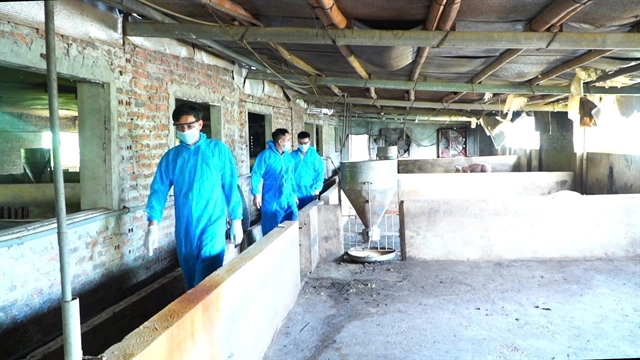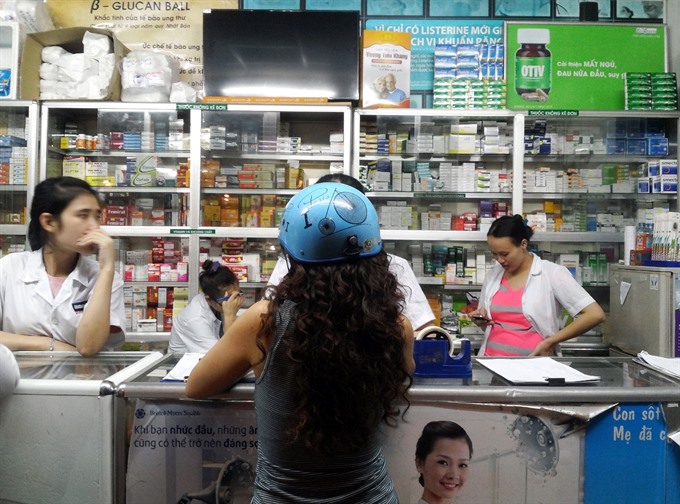

Việt Nam’s Poison Control Centre at Bạch Mai Hospital has issued a warning about paracetamol poisoning.
 |
| A drugstore on Quán Sứ Street, Hà Nội. Patients are at risk of paracetamol poisoning due to the habit of self-medication, doctors warn. — VNS Photo Đoàn Tùng |
HÀ NỘI — Việt Nam’s Poison Control Centre at Bạch Mai Hospital has issued a warning about paracetamol poisoning.
In Việt Nam, many people worry about the burden of going to hospital, so they often self-medicate in case of mild symptoms, such as fever or pain. As a result, paracetamol, a pain and fever killer, is very popular and can be brought at all drugstores without doctor’s prescription.
The poison control centre said it recently admitted a 22-year-old male patient suffering from paracetamol poisoning.
The patient, from the northern province of Sơn La, was transferred to the centre with serious liver damage and symptoms of liver failure, a condition which can be life-threatening. After being hospitalised, he developed hepatic encephalopathy, and had high fever from unknown causes.
His family said that in only two days he had taken up to 19 tablets of paracetamol 500mg to reduce his high fever.
Doctor Nguyễn Trung Nguyên from the centre said paracetamol overdose led to poisoning, made worse by the fact that he had already contracted hepatitis B.
Nguyên warned the risk of poisoning was high for self-medicated people, as many of them did not know how much was enough.
Currently hundreds of kinds of drugs containing paracetamol or paracetamol combined with other medical substances are available on the market.
“Many pain and fever killers are only different by names but contain the same ingredients. Many people, unaware of this, accidentally consume excessive amount of paracetamol as they take both pain killer and fever killer,” Nguyên said.
“Besides, the most common case is constant intake of paracetamol due to continuous high fevers.”
People would have symptoms a few hours after overdose, such as losing appetite, nausea, sweating, and feeling tired.
As the symptoms are non-specific, many people are unaware of their conditions until the occurrence of more serious symptoms like yellowish skin, yellowish eye and dark urine, leading to late hospital admission, according to Nguyên. Without proper treatment, complications such as kidney/liver failure may happen with the worst leading to coma and death.
The doctor advised people to comply with appropriate dosages being prescribed by doctors.
Normally, a Vietnamese adult should take no more than 2 grams per day. In certain cases, an amount of 3 grams are permissible, although this could pose a risk to the patient’s liver, especially for those already contracting liver hepatitis, being alcoholic, or having weak habitus, he said. — VNS









